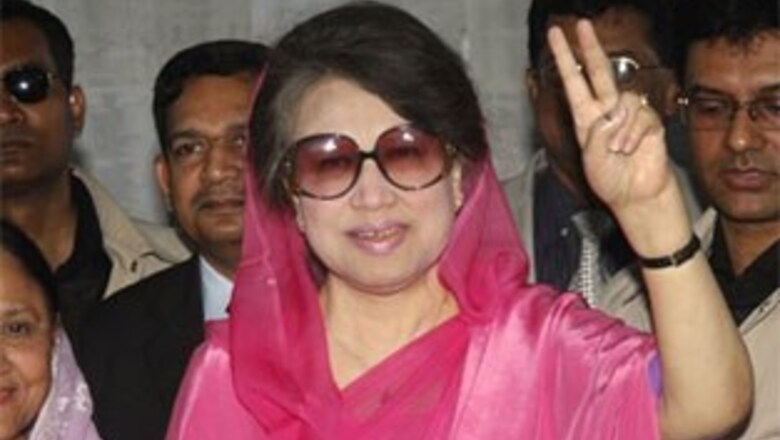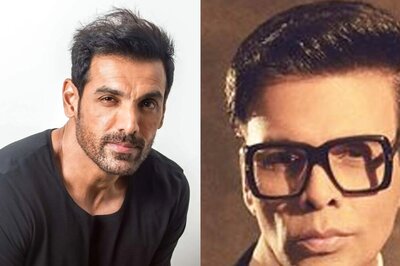
views
Dhaka: The winner of this week's elections in Bangladesh pledged on Wednesday to end the country's politics of violence and called on her arch rival to concede defeat and cooperate in restoring democracy.
An alliance led by former Prime Minister Sheikh Hasina won 262 of Parliament's 300 seats Monday in polls to end two years of military-backed rule that were proclaimed free and fair by foreign observers.
However, her rival, former Prime Minister Khaleda Zia, rejected the outcome and alleged widespread fraud, indicating Hasina will find it difficult to escape the paralyzing power struggles, street protests and corruption that have long plagued the country.
Both Hasina and Zia faced recent corruption charges, which both have denied.
Hasina said Wednesday in her first news conference since the balloting that Zia must accept the results.
"She should accept the people's verdict," she said. "Everyone knows this election has been free and fair."
"We no longer want the politics of violence and clashes," she added. "My government will serve the people of Bangladesh irrespective of political faith."
The election was the country's first in seven years and its most peaceful in decades. Failed elections in 2007 dissolved into street riots and ushered in a two-year interim government backed by the military.
Zia told reporters the vote result did not reflect the will of the people. Her party has filed complaints with the Election Commission charging ballot-rigging and forgery at 220 polling stations, including election officials registering fake votes.
"It is a farcical election," she said.
However, both Bangladeshi and international observers expressed satisfaction with the polling.
"This has been a very free and fair election," said Election Commission Secretary Humayun Kabir, who had 20,000 observers monitoring the vote. He said he would investigate Zia's allegations.
International observers, including European Union monitors, urged the opposition to accept the results.
"The process appears to have yielded a result that accurately reflects the will of Bangladeshi voters," said Constance Berry Newman, head of a 65-person delegation from the International Republican Institute, a Washington-based group that promotes democracy.
The EU Election Observation Mission, the Commonwealth Observer Group and the U.S.-based National Democratic Institute also praised the election process.
"Bangladeshi people turned out to vote in large numbers and were able to do so in a peaceful environment," EU observation mission chief Alexander Graf Lamsdroff said on Wednesday. "Our observers did not report patterns of fraud in the process."
Nobel Peace Prize laureate Muhammad Yunus, the Bangladeshi microcredit pioneer, congratulated Hasina on her victory.
"This absolute majority will give you a chance to bring about a real change in the country," Yunus said in an open letter to Hasina published on Wednesday.
Hasina said her new government would focus on reducing poverty, handling inflation and facilitating economic growth. She promised to pursue a policy of cooperation with regional neighbors to combat terrorism and poverty.
"I can assure I won't allow Bangladesh's soil to be used for any terrorist activities," she said.
Much of the credit for the smooth election went to an extensive operation by the military — backed by U.N. financing — to clean up voter rolls. More than 81 million eligible voters were photographed and given national ID cards in a process that helped root out about 10 million fake or duplicate names.
But the attempt to fight corruption had mixed results, including a failure to prevent Hasina and Zia from competing in the election. Both were among more than 200 top politicians charged with corruption, but were freed by the country's high court before the balloting.
The two women have dominated Bangladeshi politics for two decades, which is more a reflection on South Asia's penchant for political dynasties than the role of women in the Muslim nation.
Though bitter rivals, their parties campaigned on similar platforms of reducing corruption and controlling inflation. One of the few policy differences is that Hasina's party is seen as relatively secular and liberal, while Zia has allies among Islamic fundamentalists.


















Comments
0 comment